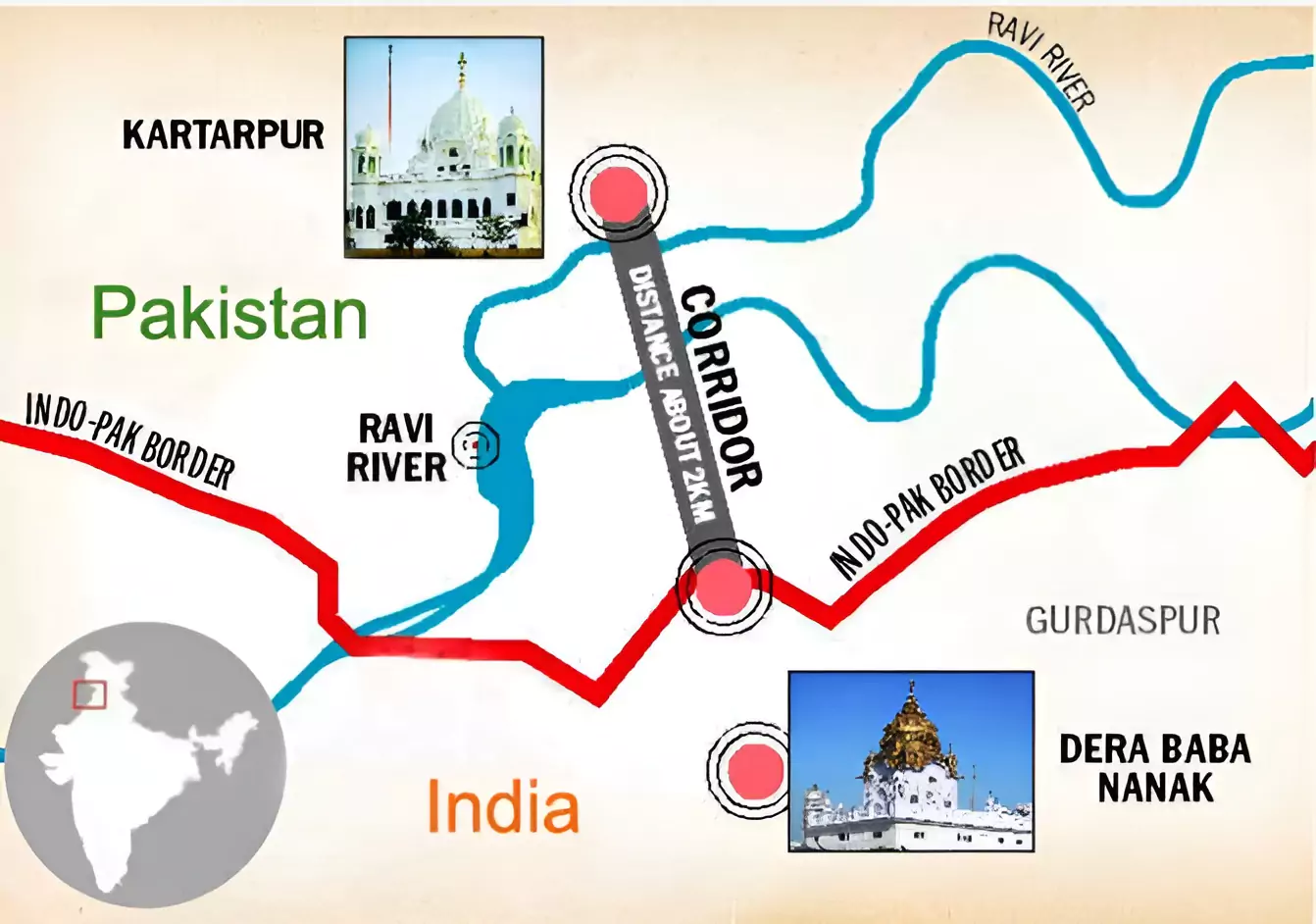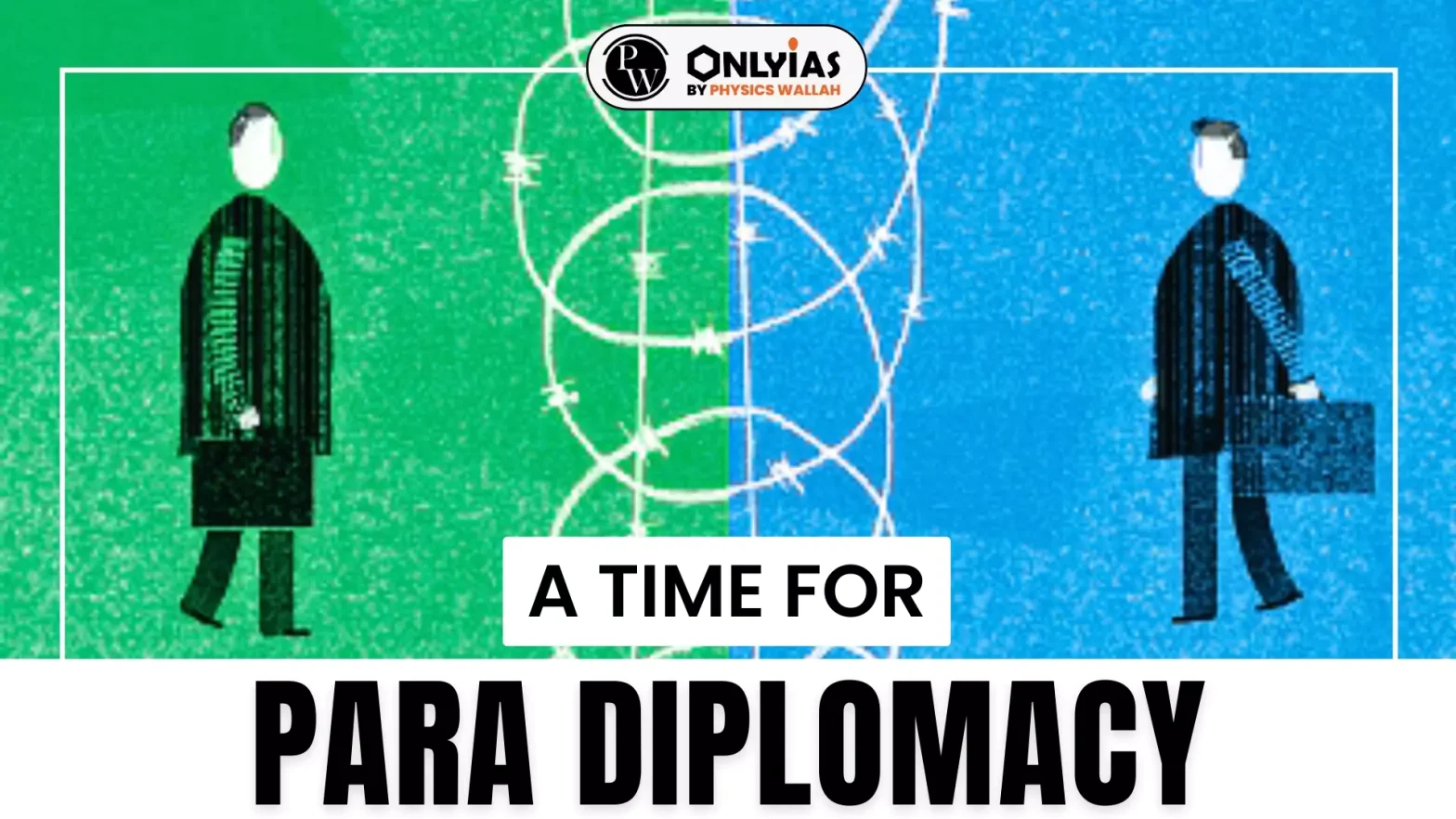Context
In its latest manifesto, the Shiromani Akali Dal (SAD) put forward a bold proposal to regain control of Kartarpur Sahib from Pakistan through a negotiated land exchange.
| Relevance For Prelims: India Pakistan Relations, Pakistan-occupied Kashmir (PoK),Gurdwara Kartarpur Sahib, Radcliffe Line, India Pakistan Bilateral Trade.
Relevance For Mains: India-Pakistan trade relations, Neighbourhood First Policy, Para diplomacy, Special Economic Zone, India-Pakistan Border challenges |
Challenges Associated with India-Pakistan Border

- Challenges in Territorial Proposals: The SAD’s suggestion to reconsider the Radcliffe Line in Punjab or the BJP’s assertion to reclaim PoK face numerous challenges.
- Altering the territorial status quo along the Radcliffe Line in Punjab or regaining control of PoK, whether through peaceful means or force, may not be entirely impossible but presents significant difficulties.
- Impact of Proposed Changes: Potential repercussions of these changes extend beyond destabilizing the already delicate territorial status quo, sparking considerable resistance due to historical and ongoing tensions between India and Pakistan.
Enroll now for UPSC Online Course
Challenges in Economic Cooperation Between India and Pakistan
- Unresolved Conflicts: An obstacle to economic cooperation stems from the position of Pakistan’s military and political leadership. For years, the Pakistani military has staunchly opposed economic ties with India, largely due to unresolved conflicts, particularly concerning Kashmir.
- Lack of Reciprocal Trade Policies: Trade between India and Pakistan has been hampered by Pakistan’s refusal to grant India Most Favoured Nation (MFN) status, a crucial step for normalizing trade relations.
- India withdrew Pakistan’s MFN status after the Pulwama terror attack in February 2019.
- Additionally, India’s revocation of Jammu and Kashmir’s special status in August 2019 led to Pakistan suspending all trade ties, further straining relations.
- Historical Baggage: The reluctance to deepen economic ties stems largely from historical conflicts and the persistent Kashmir issue, which outweigh potential economic benefits.
- Suppression of Economic Rationale: Despite occasional advocacy from the Pakistani business community for re-establishing trade relations with India, citing mutual gains, such calls are often suppressed by the political and military leadership, prioritizing geopolitical considerations over economic pragmatism.
- For example, under Shehbaz Sharif’s government, there were calls from Pakistani businessmen to resume trade, reflecting a pragmatic understanding of the economic advantages.
A Time for Para Diplomacy
- Establishing Border Economic Zones: The SAD’s manifesto suggests converting the Punjab border into a special economic zone to support small and medium enterprises, offering potential to transform India-Pakistan relations.
- This vision includes the prospect of Pakistan establishing a corresponding zone on its side, fostering integrated development and economic interdependence.
- This approach mirrors successful examples of cross-border economic zones in Southeast Asia and China’s frontier provinces, where economic cooperation transcends political barriers.
- Employing of Para Diplomacy: The SAD’s proposals underscore the potential of “para diplomacy” or “sub-state diplomacy” in advancing national interests.
- This entails official engagements between provincial and local governments across borders, often creating opportunities that national governments may overlook due to entrenched stances.
- Promoting Border Cooperation: A more viable option is to view these borders as opportunities for trade and cooperation rather than sources of conflict.
- This practical approach is consistent with the SAD’s call to reopen the Attari and Hussainiwala borders with Pakistan for trade and tourism, seeking to enhance economic prosperity in the area.
Conclusion
India’s neighborhood policy success hinges on aligning with the interests of border province residents through constructive collaboration between central and regional governments. This requires a consensus-building approach, embracing para diplomacy as a strategic tool in India’s statecraft.
Enroll now for UPSC Online Classes
![]() 23 May 2024
23 May 2024

